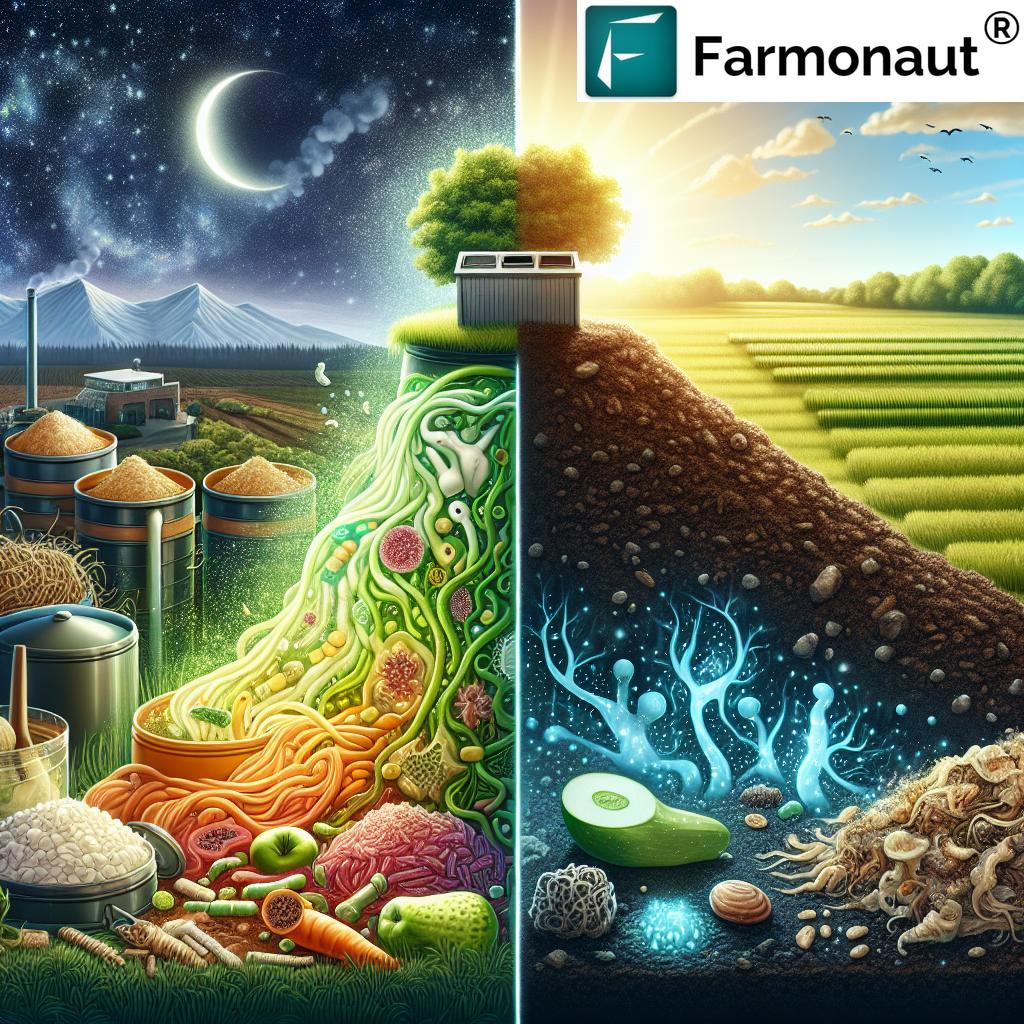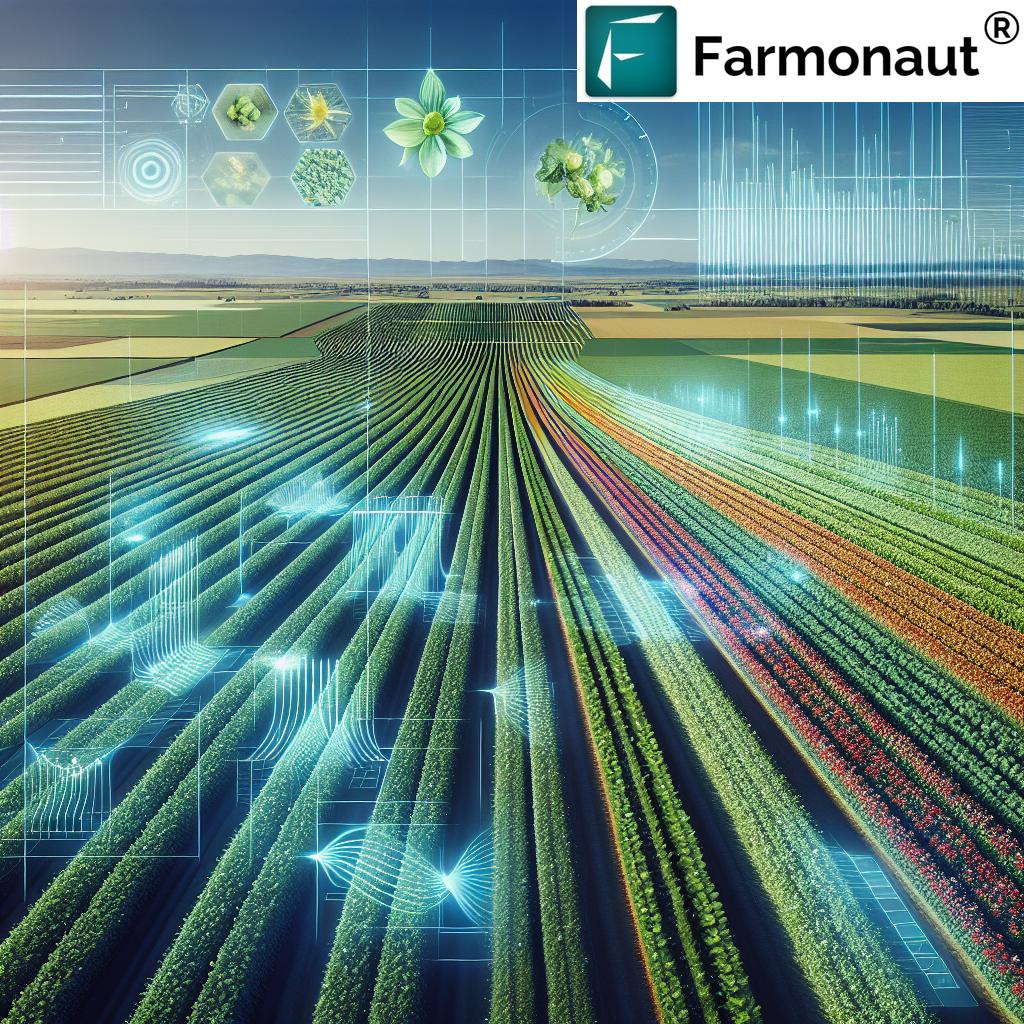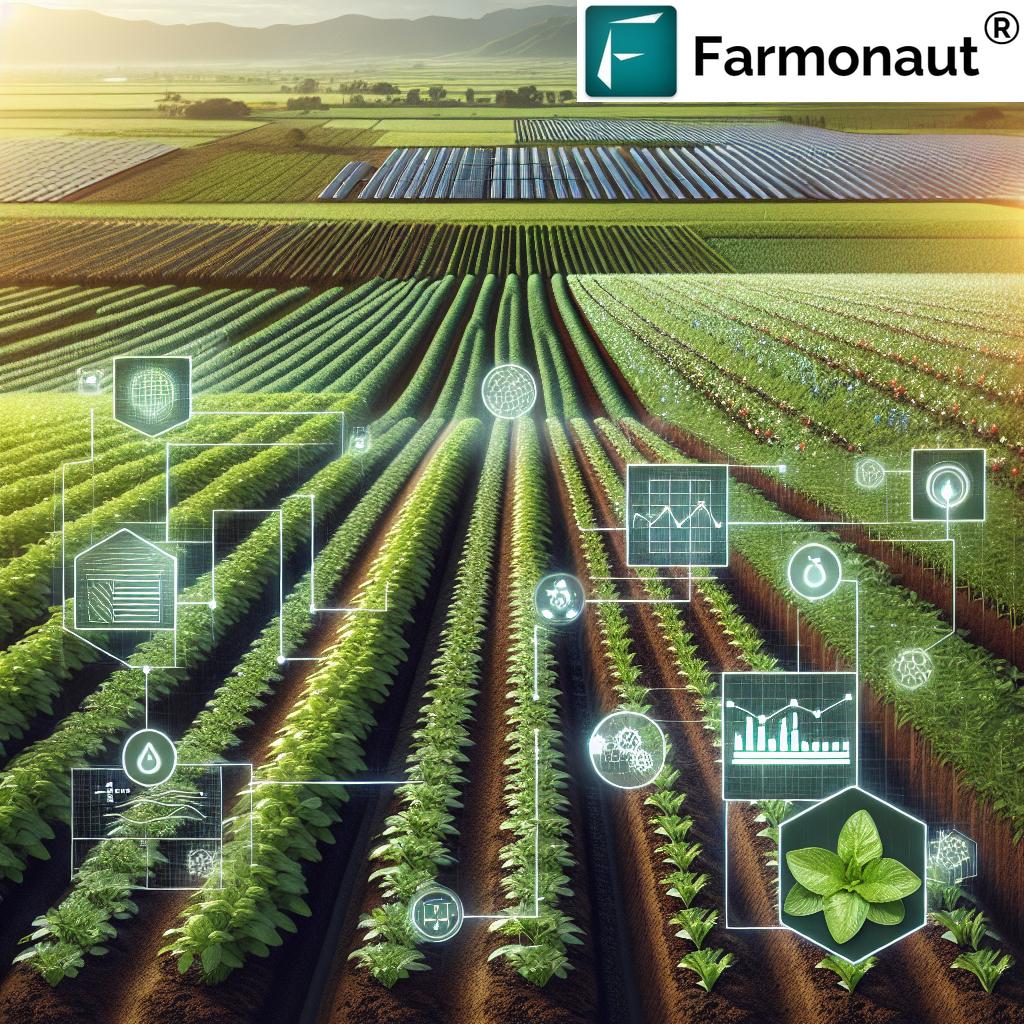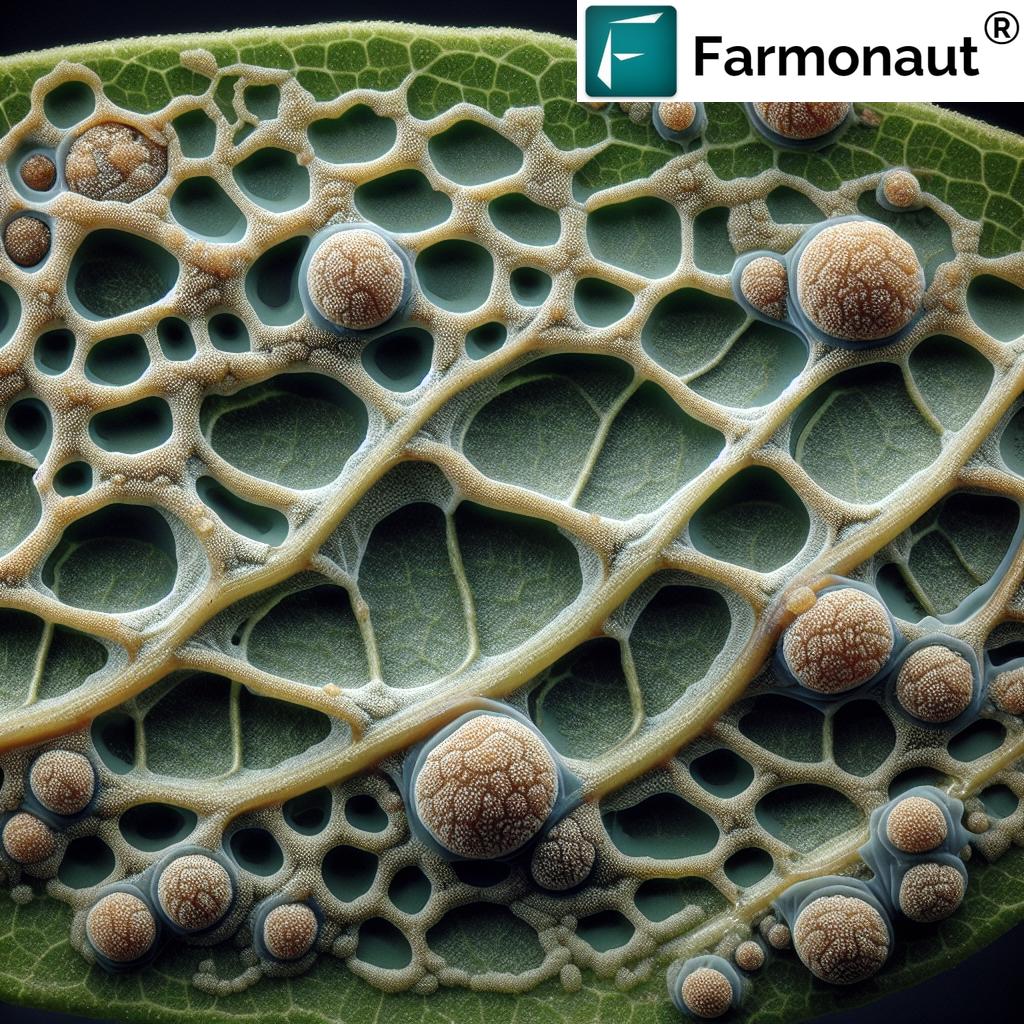Revolutionizing Soil Health: How Bokashi Fermentation Outperforms Composting for Sustainable Farming and Carbon Sequestration

“Bokashi fermentation can increase soil organic carbon by up to 17% compared to traditional composting methods.”
In the world of sustainable farming and agricultural innovation, we’re witnessing a revolution in soil health enhancement techniques. At the forefront of this transformation is bokashi fermentation, an organic matter fermentation process that’s rapidly gaining recognition for its ability to outperform traditional composting methods. As we delve into the intricacies of this groundbreaking approach, we’ll explore how it’s reshaping sustainable farming practices and contributing significantly to carbon sequestration in agriculture.
Understanding Bokashi Fermentation: A Game-Changer in Soil Health
Bokashi, a term originating from Japanese agriculture, refers to a method of fermenting organic matter using specific microorganisms. This process is fundamentally different from traditional composting and offers numerous advantages for soil health and crop production. Let’s break down the key aspects of bokashi fermentation:
- Anaerobic Process: Unlike composting, which requires oxygen, bokashi fermentation occurs in an anaerobic environment.
- Microorganism Mix: It utilizes a specific blend of effective microorganisms, including lactic acid bacteria, yeast, and phototrophic bacteria.
- Rapid Fermentation: The process is much faster than traditional composting, often completing in just 10-14 days.
- Preservation of Nutrients: Bokashi retains more nutrients from the organic matter compared to composting.
At Farmonaut, we recognize the potential of innovative agricultural waste management methods like bokashi fermentation. Our satellite-based farm management solutions complement these practices by providing real-time data on soil health and crop performance. To explore how our technology can enhance your farming practices, check out our 
Bokashi vs. Composting: A Comparative Analysis
To truly appreciate the benefits of bokashi fermentation, it’s essential to compare it directly with traditional composting. This comparison highlights why bokashi is increasingly seen as a superior method for improving soil organic matter content and overall soil health.
| Characteristic | Bokashi Fermentation | Traditional Composting |
|---|---|---|
| Process Duration | 10-14 days | Several weeks to months |
| Greenhouse Gas Emissions | Minimal | Higher (especially methane) |
| Nutrient Availability | High (preserves most nutrients) | Moderate (some nutrient loss) |
| Soil Organic Carbon Increase | Up to 17% higher | Baseline |
| Crop Yield Improvement | Significant increase | Moderate increase |
| Beneficial Soil Biology | Highly promotes | Moderately promotes |
| Essential Minerals Enhancement | 30-40% increase | Minimal increase |
| Compatibility with Environmental Land Management Schemes | High | Moderate |
This comparison clearly demonstrates the advantages of bokashi fermentation in various aspects crucial for sustainable farming and soil health management.
Environmental Benefits of Bokashi Fermentation
The environmental implications of adopting bokashi fermentation are profound, especially when considering its role in reducing greenhouse gas emissions in farming and enhancing carbon sequestration.
- Reduced Methane Emissions: Unlike traditional composting, bokashi fermentation produces minimal methane, a potent greenhouse gas.
- Improved Carbon Sequestration: The process significantly increases soil organic carbon, effectively locking carbon in the soil.
- Water Conservation: Bokashi-treated soil retains moisture better, reducing the need for irrigation.
- Biodiversity Support: The enriched soil environment promotes a diverse microbiome, supporting overall ecosystem health.
To better understand the impact of these practices on your farm’s carbon footprint, consider using Farmonaut’s advanced monitoring tools. Our API and mobile applications provide valuable insights into soil health and crop performance.
Improving Crop Yields Naturally with Bokashi
One of the most compelling reasons for farmers to adopt bokashi fermentation is its potential to significantly improve crop yields naturally. This improvement stems from several factors:
- Enhanced Nutrient Availability: Bokashi-treated soil provides a rich array of readily available nutrients for plant uptake.
- Improved Soil Structure: The fermentation process helps create a more favorable soil structure, enhancing root development and water retention.
- Beneficial Microorganisms: Bokashi introduces a diverse range of beneficial microbes that support plant growth and health.
- pH Balance: The process helps maintain an optimal soil pH, crucial for nutrient absorption.
“Multi-year trials show bokashi can boost essential soil minerals by 30-40% while promoting beneficial soil biology.”
At Farmonaut, we’re committed to helping farmers maximize their crop yields through data-driven insights. Our satellite-based crop health monitoring system can help you track the impact of bokashi fermentation on your fields over time.
Aligning with Environmental Land Management Schemes
As global agriculture moves towards more sustainable practices, bokashi fermentation aligns perfectly with upcoming Environmental Land Management (ELM) schemes. These schemes, designed to promote environmentally friendly farming practices, often incentivize methods that:
- Reduce carbon footprint
- Improve soil health
- Enhance biodiversity
- Minimize chemical inputs
Bokashi fermentation ticks all these boxes, making it an ideal practice for farmers looking to comply with and benefit from ELM schemes. By adopting this method, farmers can potentially access additional support and funding while contributing to broader environmental goals.
The Science Behind Bokashi’s Success
The impressive results of bokashi fermentation are rooted in solid scientific principles. Let’s explore the key scientific aspects that make this method so effective:
- Microbial Diversity: The specific blend of microorganisms in bokashi creates a diverse and balanced soil ecosystem.
- Organic Acid Production: The fermentation process produces organic acids that help solubilize minerals, making them more available to plants.
- Enzyme Activity: Bokashi enhances soil enzyme activity, crucial for nutrient cycling and organic matter decomposition.
- Antioxidant Effects: The process generates antioxidants that protect plants from oxidative stress.
Understanding these scientific principles can help farmers make informed decisions about implementing bokashi fermentation on their farms. At Farmonaut, we believe in empowering farmers with knowledge and technology. Our API Developer Docs provide insights into how our technology can complement these innovative farming practices.
Implementing Bokashi Fermentation on Your Farm
Adopting bokashi fermentation on your farm is a straightforward process that can yield significant benefits. Here’s a step-by-step guide to getting started:
- Collect Organic Matter: Gather a mix of kitchen scraps, agricultural waste, and other organic materials.
- Add Bokashi Bran: Mix in bokashi bran, which contains the essential microorganisms.
- Ferment in Anaerobic Conditions: Place the mixture in an airtight container for 10-14 days.
- Apply to Soil: Once fermented, mix the bokashi into your soil or use it as a top dressing.
- Monitor and Adjust: Observe the effects on your soil and crops, adjusting the process as needed.
To maximize the benefits of bokashi fermentation, consider integrating Farmonaut’s satellite-based monitoring tools. Our technology can help you track soil health improvements and crop performance over time, allowing for data-driven decision-making in your farming practices.
Economic Implications for Farmers
Adopting bokashi fermentation can have significant economic benefits for farmers:
- Reduced Input Costs: Less need for chemical fertilizers and pesticides.
- Improved Crop Yields: Higher yields lead to increased revenue.
- Soil Quality Enhancement: Long-term improvement in soil health reduces future costs.
- Potential for Premium Pricing: Products grown with sustainable methods may command higher prices in the market.
While there may be initial costs associated with implementing bokashi fermentation, the long-term economic benefits often outweigh these expenses. Farmers can use Farmonaut’s tools to track their return on investment and optimize their farming practices for maximum profitability.
The Future of Sustainable Agriculture with Bokashi
As we look to the future of sustainable agriculture, bokashi fermentation stands out as a key player. Its potential to revolutionize soil health management, improve crop yields, and contribute to carbon sequestration makes it an invaluable tool in addressing global agricultural challenges.
The integration of bokashi fermentation with advanced agricultural technologies, like those offered by Farmonaut, presents exciting possibilities. By combining traditional wisdom with cutting-edge technology, we can create more resilient, productive, and sustainable farming systems.
Conclusion: Embracing Bokashi for a Sustainable Agricultural Future
In conclusion, bokashi fermentation represents a significant leap forward in sustainable farming practices. Its ability to enhance soil health, improve crop yields, and contribute to environmental conservation makes it an invaluable tool for modern agriculture. By outperforming traditional composting in key areas such as nutrient retention, carbon sequestration, and beneficial microorganism promotion, bokashi offers a powerful solution to many of the challenges facing today’s farmers.
As we continue to navigate the complexities of climate change and environmental sustainability, techniques like bokashi fermentation will play an increasingly crucial role. At Farmonaut, we’re committed to supporting farmers in adopting these innovative practices through our advanced satellite-based monitoring and management tools. Together, we can work towards a more sustainable and productive agricultural future.
To learn more about how Farmonaut can support your journey towards sustainable farming, explore our services and get started today.
FAQs
- What is bokashi fermentation?
Bokashi fermentation is an anaerobic process that uses specific microorganisms to ferment organic matter, resulting in a nutrient-rich soil amendment. - How does bokashi differ from traditional composting?
Bokashi is faster, retains more nutrients, produces fewer greenhouse gases, and results in a higher increase in soil organic carbon compared to traditional composting. - Can bokashi fermentation improve crop yields?
Yes, bokashi can significantly improve crop yields by enhancing soil fertility, increasing nutrient availability, and promoting beneficial soil biology. - Is bokashi fermentation environmentally friendly?
Absolutely. It reduces greenhouse gas emissions, improves carbon sequestration, and supports biodiversity in the soil. - How can farmers implement bokashi fermentation?
Farmers can start by collecting organic matter, adding bokashi bran, fermenting in anaerobic conditions, and then applying the fermented material to their soil.












